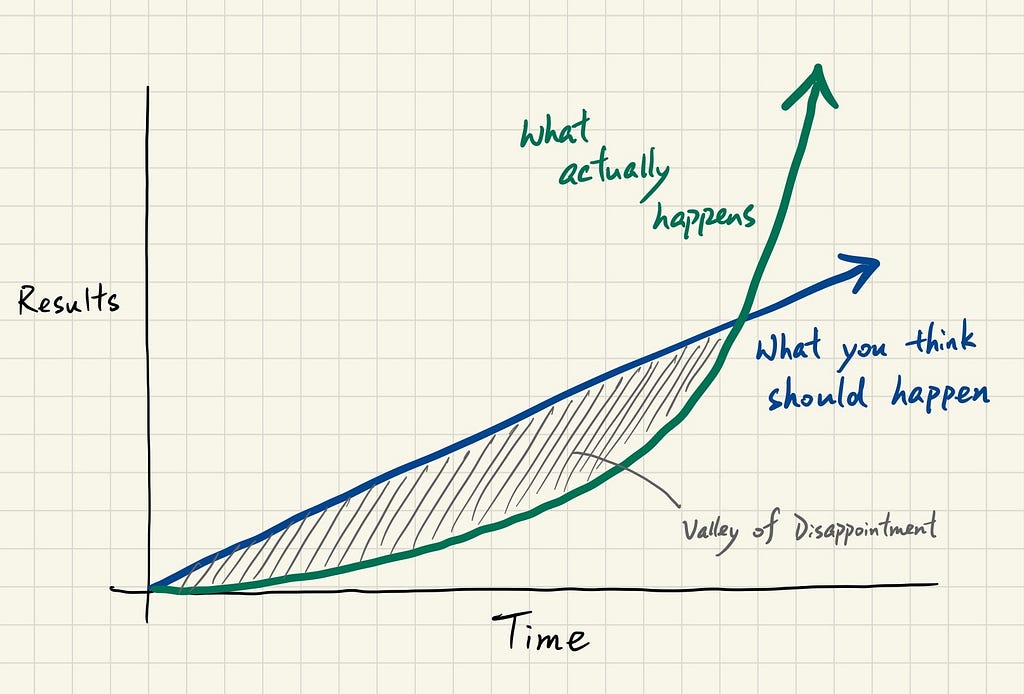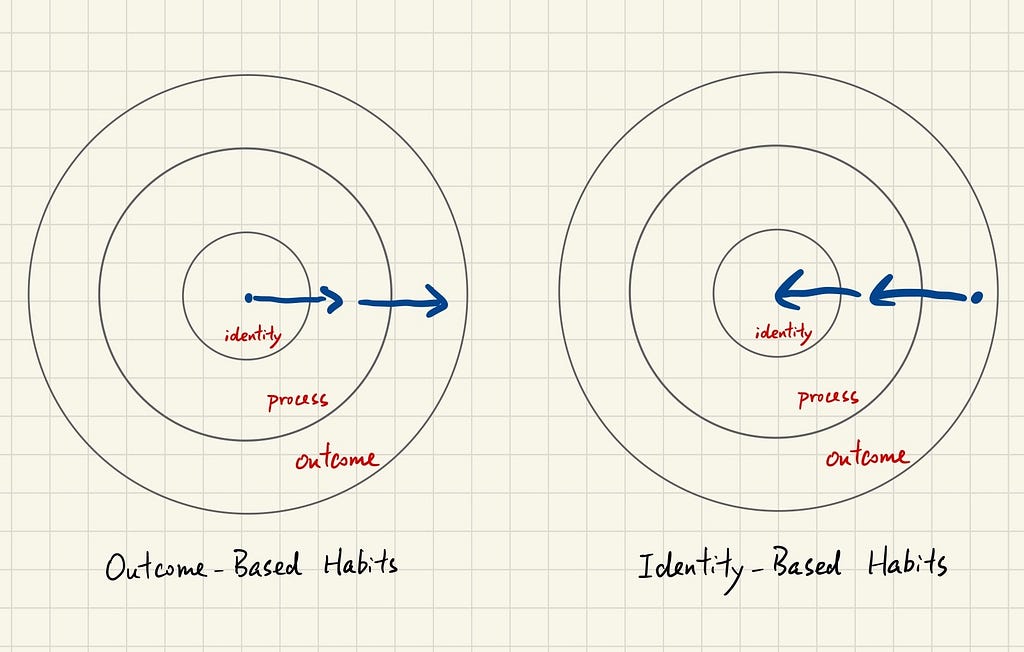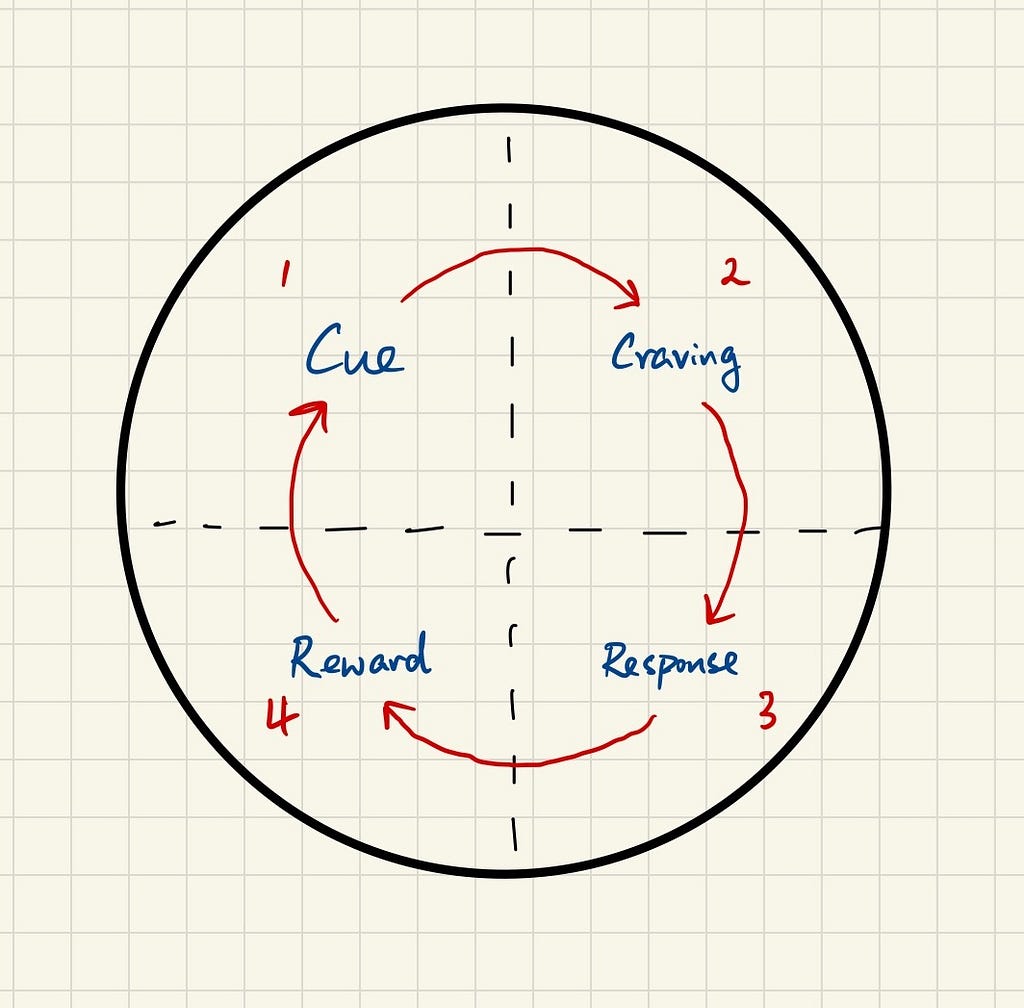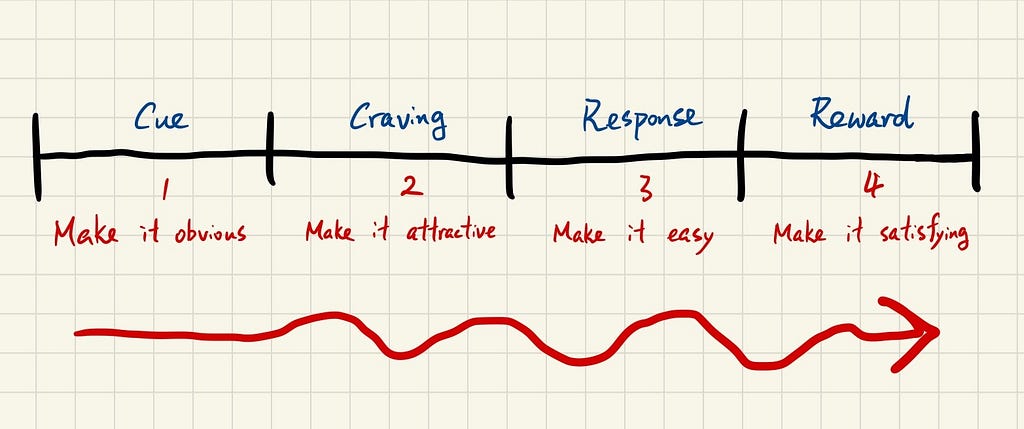This content originally appeared on Level Up Coding - Medium and was authored by Matthew Wong
Applying what I’ve learned in Atomic Habits to coding
Build long-lasting habits to be a better programmer

Atomic Habits by James Clear has always been one of the must-read books for high achievers. Today, I’ve finished the book and come up with the most inspiring highlights and takeaways. As a software engineer, I think what I’ve learnt in this book could inspire me to build long-lasting habits to become a better programmer.
What I’ve learnt
Fundamentals
The power of atomic habits would surprise everyone as the tiny changes could make a big difference.
To build good habits, we have to change our mindsets and beware 4 points. They are 1% better everyday, plateau of latent potential, focus on systems instead of goals and build identity-based habits.
1% better everyday
This is probably the key highlight in this book:
0.99³⁶⁵ = 0.03
1.01³⁶⁵ = 37.78
So doing 1% better everyday could make a significant change a year later.
Plateau of latent potential

Focus on systems instead of goals
Goals: results you want to achieve
Systems: processes/steps that lead you to results
Most people focus on the goals and neglect the systems. But actually, Goals are good for setting a direction only. Systems are best for making progress.
Build identity-based habits

The ultimate form of intrinsic motivation is when a habit becomes part of your identity. If you want to build a reading habit, your goal is not to read books but to become a reader. If want to build a running habit, your goal is not to run a marathon but to become a runner.
Science of how habits work
The Habit Loop
- Cue
- Craving
- Response
- Reward

The cue triggers a craving. Then it motivates a response. And it provides a reward, which satisfies the craving and finally becomes associated with the cue.
Summary of how to create good habits

1st Law: Make it Obvious
- Fill out the habits scorecard
Make a list of your daily habits to become more aware of your behaviour. Write “+” next to it for a good habit. Write “–” if it’s a bad habit. If it is a neutral habit, write “=”.
The Habits Scorecard: Use This Simple Exercise to Discover Which Habits You Should Change
Use implementation intention
I will [BEHAVIOUR] at [TIME] in [LOCATION].
- Use habit stacking
After I [CURRENT HABIT], I will [NEW HABIT].
2nd Law: Make it Attractive
- Use temptation bundling
Linking an action you want to do with an action you need to do.
How to Stop Procrastinating and Boost Your Willpower by Using "Temptation Bundling"
- Join a culture
We tend to imitate the habits of three social groups: the close (family and friends), the many (the tribe), and the powerful (those with status and prestige)
3rd Law: Make it Easy
- Reduce friction
Decrease the number of steps between you and the good habits.
- Prime the environment
Prepare the environment to make future actions easier.
- Use the Two-Minute Rule
When you start a new habit, it should take less than two minutes to do.
Downscale the action so that you can start and finish in 2 minutes or less. Then, you can think about upgrading the action gradually.
How to Stop Procrastinating by Using the "2-Minute Rule"
- Automate your habits
Invest in technology and onetime purchases that lock in future behaviour.
4th Law: Make it Satisfying
- Use reinforcement
Give yourself an immediate reward when you complete your habit.
- Use a habit tracker
Keep track of your habit streak.
- Never miss twice
When you forget to do a habit, make sure you get back on track immediately.
How to apply it to coding
As a software engineer, I really want to apply what I’ve learnt in this book to building good habits that help me to write better code right away. There are two habits I want to build and really hope that they can last so as to improve my problem solving skills and be better in coding.
Desired Habit 1: Reading books
A good book will always give you insights into a certain area. This definitely helps me to grow my mindset when coding. For examples, Clean Code, Clean Architecture, Design Pattern, etc.

Make it Obvious
- Implementation intention
I will read 10 pages at 8am in my living room everyday
- Habit stacking
After I get on the train, I put on my headphone and start reading
- Design my environment
I will place my iPad in my living room before the night before so I can start reading.
Make it Attractive
- Temptation bundling
Listening to my favourite music while reading books. I will choose the instrumental version as it helps me to focus instead of just listening to the music.
Make it Easy
- Two-Minute Rule
Start with reading 2 pages first to make it easy to get started.
- Reduce friction
Leave my phone in the drawer until I finish reading.
Make it satisfying
- Reinforcement
Have my favourite snacks. Of course, don’t eat too much.
- Habit tracker
I can track the progress of reading an eBook on “Book” or “Kindle” apps. Also, I can use Notion to write chapter summaries after reading each chapter.
Desired Habit 2: Practise Leetcode
Leetcode is a great tool to enhance my problem solving skills and prepare for technical interviews.

Make it obvious
- Implementation intentions
I will solve one medium Leetcode problem at 9pm on my desk
- Habit stacking
After I finish my lunch in the office, I get back to my seat and spend 20 minutes on solving one Leetcode problem
Make it attractive
- Join a culture
We tend to adopt habits that are praised and approved of by our culture because we have a strong desire to fit in and belong to the tribe. I can join a community on discord or form a coding challenge community with my colleagues.
- Reframe mind-set
👎 I have to practise Leetcode
👍 I get to improve my problem solving ability and perform better in coding
Make it easy
- Two-Minute Rule
Spend 5 minutes on reading one Leetcode problem to make it easy to get started.
Make it satisfying
- Reinforcement
Watch Netflix for 30 mins after solving one problem.
- Habit tracker
Track the number of questions solved on Leetcode.
Tiny changes. Remarkable results.
After reading Atomic Habits, I did apply what I’ve learnt to build my desired habits everyday. Doing a bit of work everyday may not show significant changes immediately. But I believe obvious improvement will be seen one year later. If you also struggle to improve your programming skills, let’s try the methods and start changing today.
Level Up Coding
Thanks for being a part of our community! More content in the Level Up Coding publication.
Follow: Twitter, LinkedIn, Newsletter
Level Up is transforming tech recruiting ➡️ Join our talent collective
Applying what I’ve learnt in Atomic Habits into coding was originally published in Level Up Coding on Medium, where people are continuing the conversation by highlighting and responding to this story.
This content originally appeared on Level Up Coding - Medium and was authored by Matthew Wong
Matthew Wong | Sciencx (2022-07-06T14:25:45+00:00) Applying what I’ve learnt in Atomic Habits into coding. Retrieved from https://www.scien.cx/2022/07/06/applying-what-ive-learnt-in-atomic-habits-into-coding/
Please log in to upload a file.
There are no updates yet.
Click the Upload button above to add an update.
